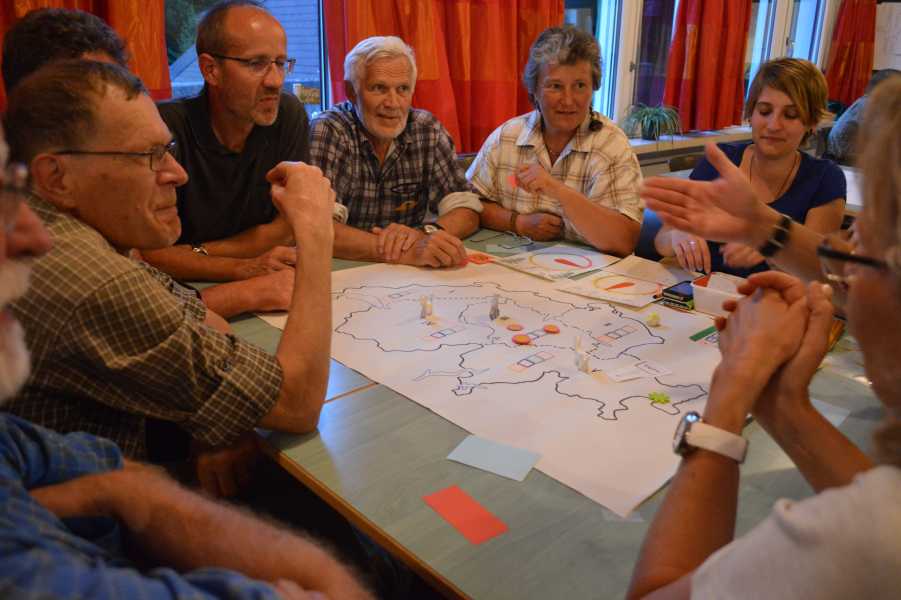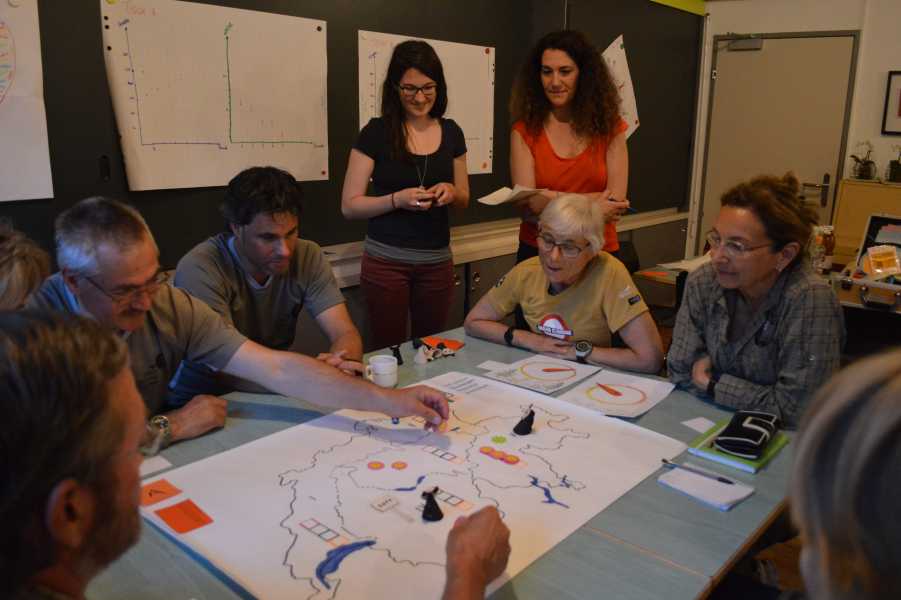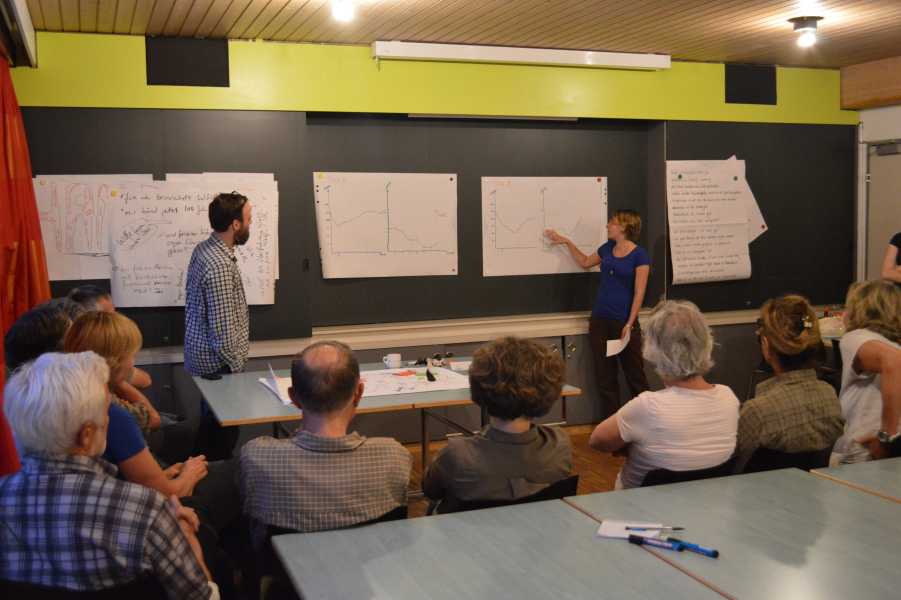Conflict resolution in wildlife conservation
In a second years’ bachelor seminar, students in environmental sciences took the political discourse about the wolf in Switzerland as a case study and over a period of 3 weeks, developed their own role-playing games. The assignment was given by WWF Switzerland who was looking for a negotiation game about the wolf in Switzerland to use for their training about wolf and bear for hiking guides in the canton of Grison.
The students have developed four very creative and different games and after having crash-tested all games with students and representatives from the WWF, the WWF picked one of the four games for their training. The purpose of the game “Stadt Land Wolf” is to debate over the allocation of public funds to four different policy measures – protected areas, herd protection, information campaign and killing of the wolf. Each player thereby represents a different stakeholder – farmer, hunter, forester, politician, urban dwellers, environmentalist – taking over either pro, contra or neutral position towards the wolf. The players take their decisions based on the actual situation on the board and the indicators “Nature” and “Swiss sheep population” that serve as guidelines to assess the superordinate situation in Switzerland.
During the WWF training in May, the game was successfully played by 18 hiking guides, subdivided in two groups. In the lively debate, the players exchanged their arguments and tried to find allies in financing the respective measures. Over the course of the game, the participants – all having different professional backgrounds – realized the importance of listening to each other’s arguments and collaborating to find satisfactory solutions. The participants had a lot of fun and the game was the starting point of discussions far into the night.
Game “Stadt Land Wolf” played by hiking guides during WWF training
Meanwhile, we played the game a second time at the ETH “Schlusstage Integrierte Praktika” with another group of second year bachelor students. Some of the developers of the game were helping to document the game while their class mates tried to find common grounds.

WWF was very content with the game. As a further step, WWF is considering to use it as a teaching material for teenage students. This is a good example for how topics that are relevant in the practice can be tackled in a theoretical context and how the results can be brought back to practice – strengthening the exchange between science and practice.


